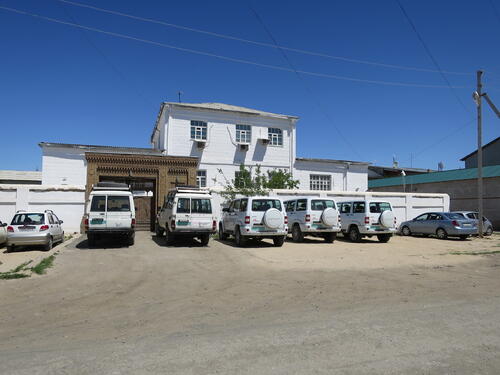
7,300
7,3
2,500
2,5
760
76

880
88
TB programme
In January, MSF launched its clinical trial TB PRACTECAL in Nukus, Karakalpakstan, and had enrolled 55 patients by the end of 2017. The trial aims to evaluate regimens containing two promising new drugs, bedaquiline and pretomanid, combined with existing and repurposed drugs, over a much shorter course of six months. This treatment has the potential to be more effective and more tolerable, and does not require injections.
As part of the comprehensive TB care programme in Karakalpakstan, MSF works with the national and regional health ministries to implement models of care that are more patient-centred. In 2017, MSF supported the rollout of the new World Health Organization guidelines in 5 of 16 districts.
During 2017, 2,466 patients started TB treatment; of these, 1,710 were treated for drug-sensitive TB and 756 for drug-resistant strains, including 79 for extensively drug-resistant TB (XDR-TB). Of the 756 drug-resistant TB patients, 130 were treated with new or repurposed drugs.
HIV care
Working with the health ministry at the Tashkent HIV project, MSF has set up a ‘one-stop shop’ facility to support the integration of services for HIV, TB, hepatitis C and provide more effective testing and treatment for co-infected patients. In 2017, MSF and the Republican AIDS Centre reached an agreement that MSF will test and treat high-risk groups, such as people who inject drugs and sex workers.
In 2017, 153 patients started treatment for hepatitis C and 14 patients were initiated on third-line antiretroviral (ARV) treatment for HIV, after their initial and subsequent regimens ceased to work. Almost 880 patients started first-line ARV treatment in 2017.


















